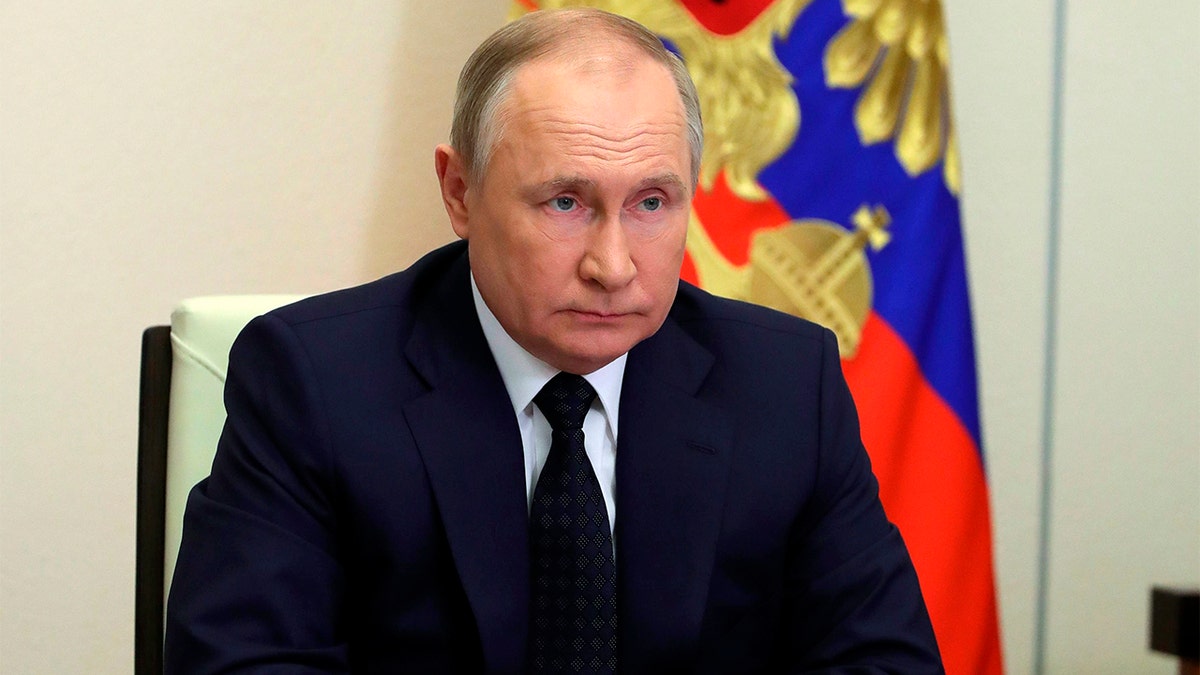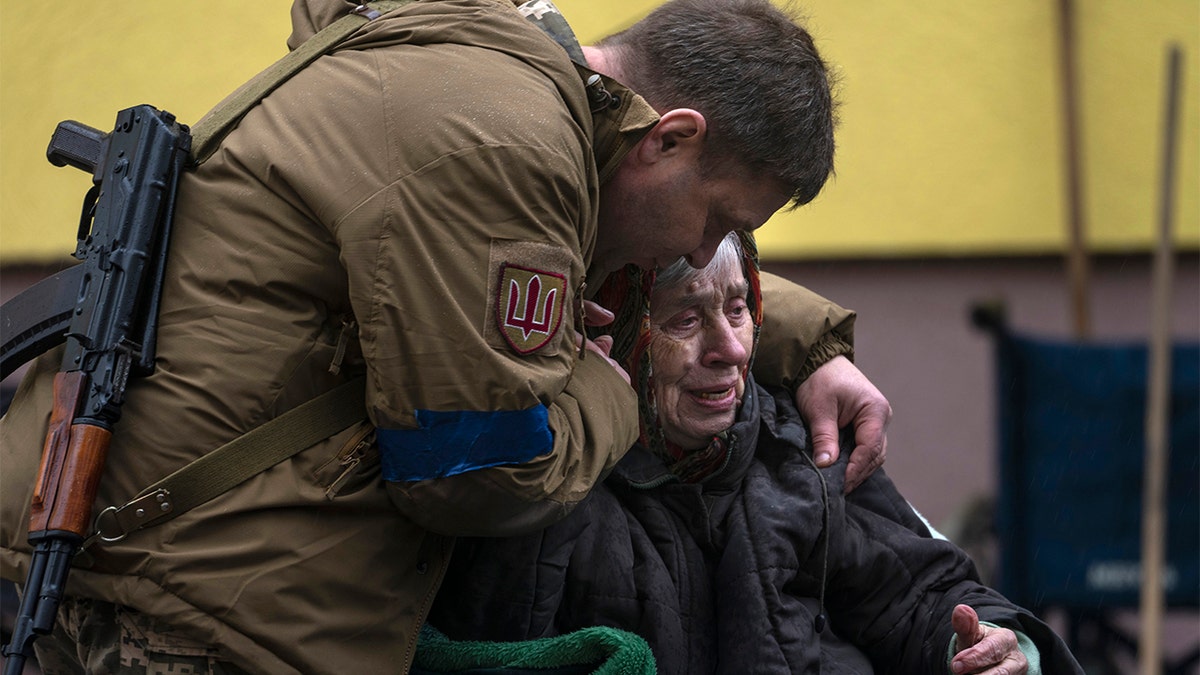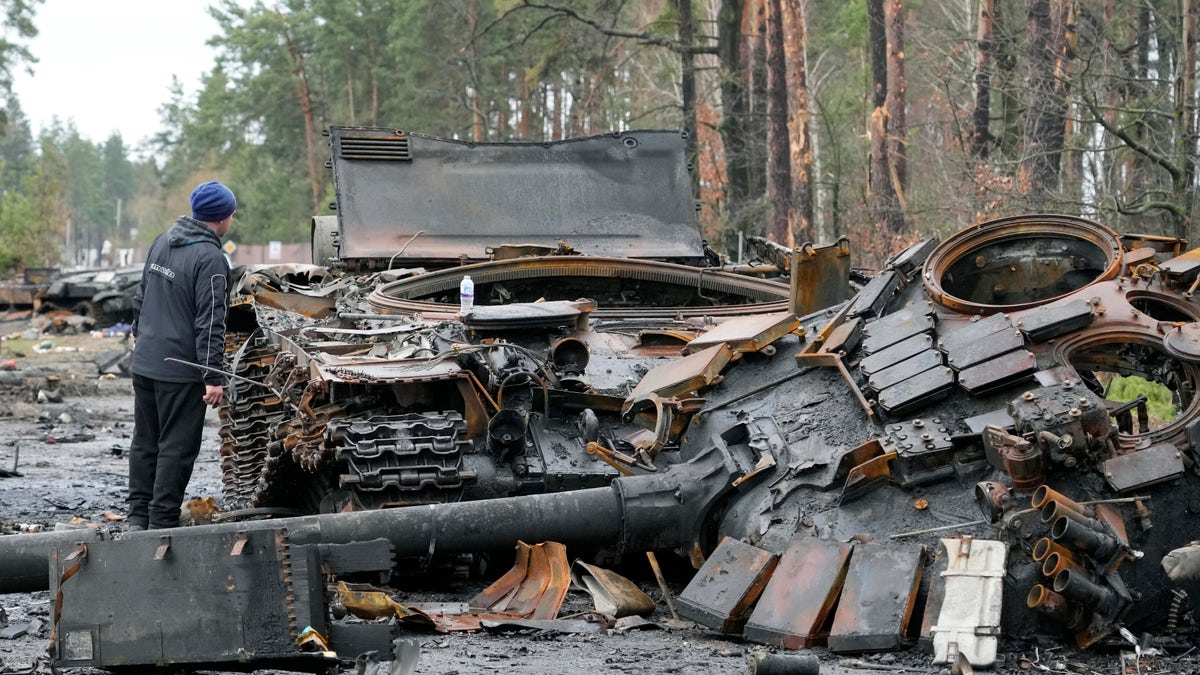Russian journalist says he intuitively knew Putin was a 'bloody man'
Exiled Russia journalist Andrei Loshak describes the state of Russia's future, while encouraging Russians to avoid supporting anything in favor of the Ukrainian war.
"At the beginning, the graffiti used to say 'F--- Russia' or 'F--- Putin,' but now it says 'F--- Russians.' It's unpleasant, of course," Russian journalist Andrei Loshak says.
He is one of the thousands of Russians who fled to neighboring Georgia in the aftermath of the war in Ukraine and around the time that Russia criminalized independent war reporting.
Graffiti aside, Loshak says he is fond of Georgia and relishes that, from there, he can say and write what he chooses. He tries to be philosophical about all the inconveniences associated with fleeing one's country in a heartbeat and having credit cards that are pretty much useless anywhere outside of Russia and the reality that he won't be able to go home anytime soon.
The bigger issue, he says, is the incredible malaise about the war and what it is doing to his world, his cousins, his neighbors.
"My soul aches a lot. It aches for Ukraine. It is not a foreign country, not an abstract Syria, which is also terrible," Loshak says. "War is terrible. But Ukraine is also my native country, my native land. My father was born in Kharkiv, and my grandfather was born in Odesa. As a child, I spent every summer in Odesa. All of this is sheer pain."

Russian President Vladimir Putin attends a cabinet meeting via videoconference at the Novo-Ogaryovo residence outside Moscow, Russia, March 23, 2022. (Mikhail Klimentyev, Sputnik, Kremlin Pool Photo via AP)
UKRAINE WARNS MOSCOW IS RUNNING ‘PARALLEL’ EVACUATION ROUTES FROM MARIUPOL INTO RUSSIA
The former Soviet republic of Georgia is famous for its festive tables forever groaning with food and local wine, but Loshak says none of his compatriot exiles are much in the mood for all that.
"I haven't watched a single TV series or movie since the war began, although I used to watch a lot. And when my Netflix account was shut down because I could no longer pay for it, I didn't even notice," Loshak said. "Thousands of people have written to me that they have the same condition. You open up Telegram feeds in the morning, and you're immersed in this hell, and you can't stop."
Loshak says one shouldn't hide from this condition, calling it his and Russians' "punishment, collective responsibility at least knowing what they're doing and what's going on there."
The pandemic was probably good practice for the independent journalists in Russia who now need to do much of their work remotely. It is not easy, but many say they are determined to keep at it, countering the state propaganda in whatever way they can.
Loshak is working on a documentary about how many families are fighting and splitting and no longer on speaking terms over differing opinions of the war. This is causing a big rift in Russian society. Loshak, like many, never believed the war would actually happen.
Asked when he came to understand just what Russian President Putin was capable of, Loshak says it was when explosions in four apartment blocks around Russia went off, killing hundreds in the early fall of 1999.
The Kremlin attributed it to Chechen terrorists. To this day, many suspect the hand of the FSB behind those deadly bombings, creating a justification for Moscow to invade Chechnya.
"He never seemed kind to me," Loshak says of Putin. "I actively disliked him from 1999, even though I was 26 at the time and wasn't interested in politics. But I felt something immediately in my bones ... his background, the way he looked, the KGB.

A soldier comforts Larysa Kolesnyk, 82, after being evacuated from Irpin, on the outskirts of Kyiv, Ukraine, March 30, 2022. (AP Photo/Rodrigo Abd)
ZELENSKYY WARNS RUSSIA WILL LIKELY INVADE OTHER COUNTRIES IF SUCCESSFUL IN UKRAINE
"When the terrorist attacks began, on the wave of which he started the second Chechen war, intuitively I got the feeling this was a very dirty game. And from that moment, I had the feeling he was quite a bloody man," Loshak says.
At some point, he says, that was forgotten and Putin just seemed a pragmatic, rational man who would keep Russia in a sort of gray area.
"But then," Loshak adds, "there was this Dima Yakovlev law."
The law was drawn up in 2012 in retaliation for the Magnitsky Act being passed in Congress.
The Magnitsky Act called for sanctions on people deemed "human rights abusers" in the aftermath of the death of Sergei Magnitsky in a Russian jail. It was a death the Russians tried to sweep under the table.
Dima Yakovlev was a Russian orphan who died at the hands of his adoptive U.S. parents after being left in a parked car for nine hours. So the Russian retaliatory logic was that no Americans should adopt Russian children because they could not be trusted to protect them. A rather asymmetrical tit-for-tat, many, including Loshak, say.
"It was difficult to punish Americans economically, but it was possible to do this," Loshak said. "It was total insanity. I don't understand how these people are made if they sacrifice children to punish some American families."
Loshak feels Russia has gotten to the point where "it lives in the head of an elderly KGB officer with outdated ideas about the world, his complexes and so on … the whole country finds itself in this kind of insane matrix."
Asked what Russians seeking change can do now, in the current situation, Loshak said, "I don't have an answer right now. I can't say, 'Guys, come out to rallies' because it makes no sense now. And, anyway, I lost this moral authority when I left the country."

A resident examines destroyed Russian tanks in the village of Dmytrivka close to Kyiv, Ukraine, April 2, 2022. (AP Photo/Efrem Lukatsky)
CLICK HERE TO GET THE FOX NEWS APP
He believes nothing short of hundreds of thousands of people pouring onto the streets will force the Russian authorities to stand up and listen. But that's not going to happen, according to many observers, because people are afraid.
"There's no point in calling for political activism right now. Perhaps we should remember the manifesto (Alexander) Solzhenitsyn wrote in the 1970s — 'Live Not By Lies,' about how to remain a decent person under the conditions of a totalitarian state. You must try not to cooperate with it," he says.
"Do not take money from the state as far as that is possible. Don't owe it anything."
He tells his friends making the hard decision to stay or go to leave.
"Save your soul," Loshak said, adding Russia "is sliding toward real fascism as a form of government."









































